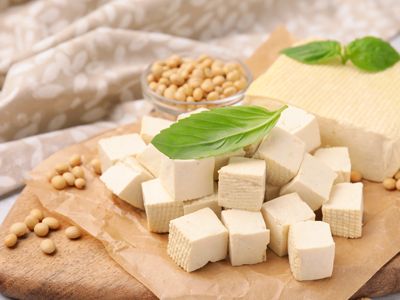
Q6:Is there any difference in the taste of tofu which produced with different coagulants?
There are three common tofu coagulants, which are Gypsum, Nigari, and gluconolide (GDL).
Gypsum: It is a natural mineral with low price and high calcium content. The tofu made from it has a dense texture. Gypsum tofu contains calcium which can help the body to meet the daily calcium requirement. Food grade gypsum is divided into two types: "anhydrous" and "dihydrate". Food-grade anhydrous calcium sulfate (Anhydrous: CaSO4) and calcium sulfate dihydrate (Dihydrate: CaSO4 · 2H2O) are both listed as safe food additives and it is safe to eat.
Nigari: A coagulant which extracted from sea, therefore the price is higher and the tofu made is coarser. It requires experience and technology to make a perfect regular tofu (firm tofu). Nigari is rich in magnesium, which is helpful for strengthening the bones. In addition, you also can have magnesium from grains, fruits and vegetables.
Gluconolide (GDL): It is a coagulant which extracted from sugars. It has low mineral content. Compared with Nigari and Gypsum, it has lower nutritional value. It is often used by food manufacturers to make silken tofu (soft tofu) and tofu pudding.
For example, Japanese-style tofu is usually mixed and poured directly into the box and made by two-stage or three-stage low-temperature sterilization and cooling processes.
https://www.yslfood.com/en/product/Two-Stage-Pasteurizing-Cooling-Conveyor-Machine/two-stage_+Pasteurization_cooling_conveyor_machine.html
